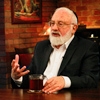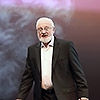
Michael Laitman, On The Times of Israel: “Can Israel Win against Terror?”
Since the birth of the Jewish nation, it has faced vicious enemies. Each time, a different villain sought to extinguish our nation. They almost always won, and we almost always lost, but in the end, we are still here and they are long gone.
Terrorism is a new kind of adversary: ill-equipped, disorganized, and untrained, yet tenacious and full of fighting spirit. The latter two were precisely our weapons when we fought against mighty enemies, and now we feel lost precisely because we do not have them. If we rebuild our spirit, we will win without a fight. If we do not rebuild it, we will lose no matter how hard we fight.
Today’s terrorists are more resourceful than ever, and they are fearless. We, on the other hand, despite having far superior equipment, are timid, passive, and dejected. If we continue to rely only on weapons, we will disintegrate, the country will dissolve, and our people will return to the dismal state it was in prior to the establishment of Israel, and which culminated in the Holocaust.
If we want to win against terror and stay in Israel, we have to act on two levels: internal and external. The internal level is the decisive one, and the one that will determine if we succeed. However, the external level is vital as a means to enable our work on the internal.
On the external level, we must cut off all ties with the enemy, and fight against it just as we should fight against an enemy. In other words, if they come to kill us, we should kill them first. At that point in our struggle, we should have no thoughts of peace because it will not happen. On the contrary, the more passive we are, the more aggressive they will become, leading to more casualties on both sides.
As with any struggle for survival in nature, if your enemy wants to kill you, and you are hesitant, it will not pacify your enemy, but only make him more aggressive because he will interpret your hesitation as a sign of weakness. But if you show strength, determination, and courage, your enemy will hesitate, and this will buy you time to do what you need to do.
Once we have relative peace, we should focus all our efforts on the internal level, which is within the Israeli society. The key element that makes us strong is our unity. Although Jews are famous for never agreeing, our ability to rise above our disagreements and form a society based on mutual responsibility and care for one another has earned us the title Am Segula (a virtuous people), whose mission was to become an example of unity, a light to the nations.
The Segula (virtue) that awarded us the title was our determination to nurture love of others to the point where we have made it the overarching principle of Jewish law. This is why Rabbi Akiva said that “Love your neighbor as yourself” is the whole, and the law of the Torah.
The unity of the people of Israel was unique and praiseworthy precisely because it was so unlikely. It was unity among people from multiple backgrounds, cultures, and ethnicities, who agreed on one and only thing: unity is superior to all other values. You can believe whatever you want and live however you want, but if you value unity with all other people above all else, you are one of us, a member of the Israeli people.
The diversity of the ancient Israelites forced them to forge an extremely powerful union, something that could overcome ancient rivalries and natural suspicion. When they succeeded and united “as one man with one heart,” they became a model that the world could replicate if it were to aspire for peace among all people.
After centuries of struggles and infighting, the people of Israel succumbed to the alienation among them, and unity was no longer their superior value. The people dispersed and were exiled from Israel, and the Jewish people have become the world’s pariahs. Not only did they become the opposite example of the one they were meant to serve, but in doing so, they denied the world of hope that there could be peace among all people. This is why Jew-hatred is so pervasive.
Now that we are back in Israel, we have a chance to reestablish our unity. If we can exalt the value of unity above all other values, we will once again be a light to the nations, and we will win the world’s favor. We will win the struggle over Israel without a fight not because the Arabs will surrender, but because they will want to join our unity and will want us to set the example that they, too, need.
But if we succumb to infighting once again, there is no question that our enemies will win and drive us out from Israel no matter how superior our military capabilities may be. The fight against terrorism, therefore, will succeed only if it is a prelude to the real battle: against our hatred of each other.
[304428]
Filed under: Israel Today, New Publications | Add Comment / Ask Question →
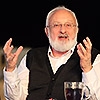 Question: If some deficiency arises in me and I understand that the Creator caused it, should I still add some external words?
Question: If some deficiency arises in me and I understand that the Creator caused it, should I still add some external words?
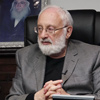
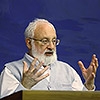
 Michael Laitman, On Quora:
Michael Laitman, On Quora:

